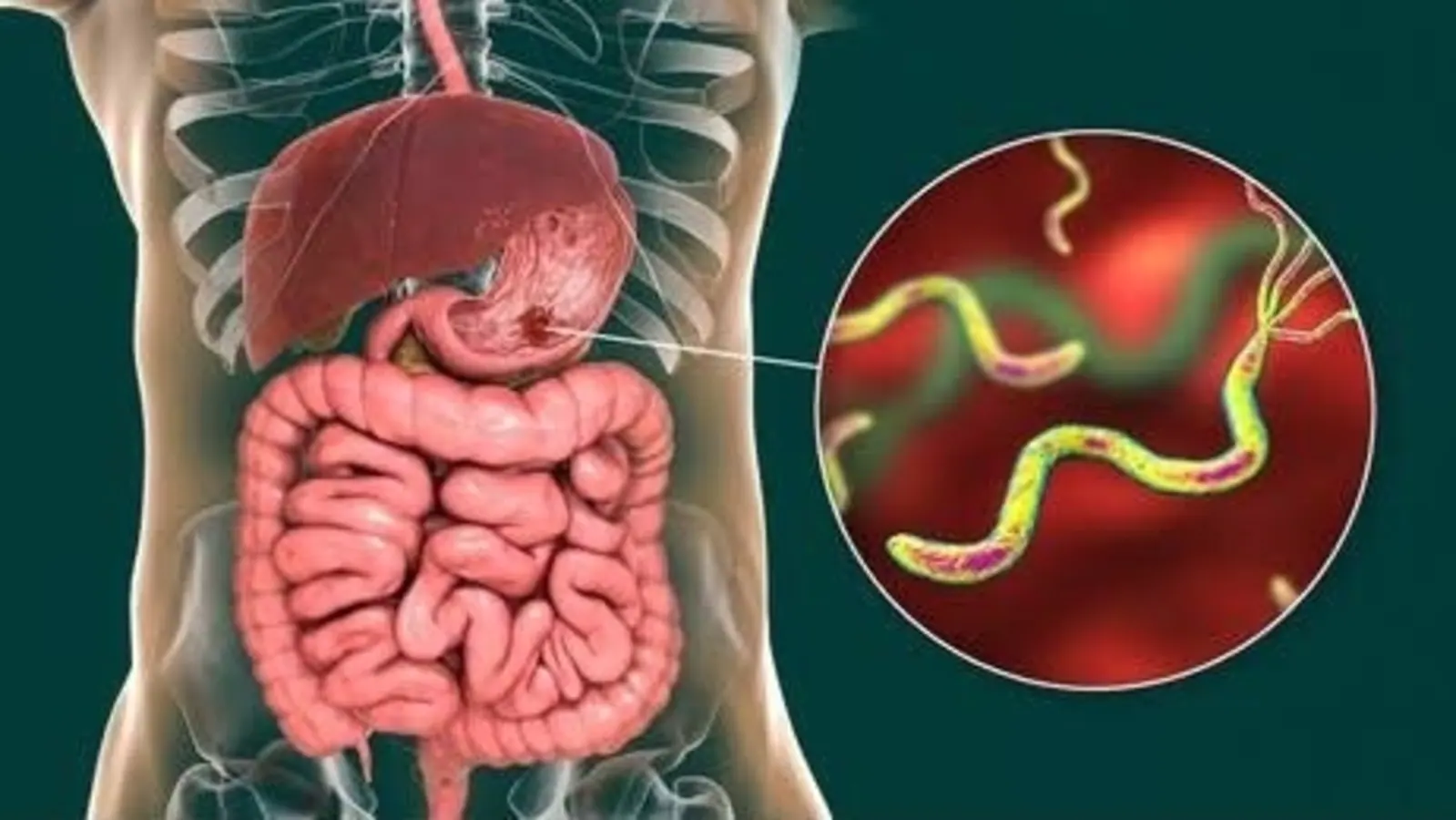[ad_1]
The open painful sores in the digestive system’s lining, i.e. the lining of your stomach or the upper part of the small intestine or oesophagus among other places, are known as peptic or stomach ulcers which can lead to internal bleeding and sometimes may end up meaning that you’ll need blood transfusions in the hospital. Health experts point out that though some patients may have no symptoms, some may feel discomfort or burning pain hence, it needs to be diagnosed and treated early as it affects the patient’s quality of life.
Causes:
In an interview with HT Lifestyle, Dr Anish Desai, MD Nutraceutical Physician, Founder and CEO of IntelliMed Healthcare Solutions, shared, “Peptic ulcer disease is most commonly found in the stomach and proximal duodenum. Peptic ulcer disease affects approximately 500,000 people each year, with 70% of patients developing it between the ages of 25 and 64 years. Helicobacter pylori, long-term aspirin or anti-inflammatory medication (ibuprofen) use are the common causes of ulcer. An ulcer can be aggravated by stress and spicy foods.”
Elaborating upon the same, Functional Nutritionist Mugdha Pradhan, CEO and Founder of iThrive, explained, “Ulcers can be caused by a variety of factors, including infection H.Pylori, which can disseminate through food, water and body fluids throughout the body; strong pain relievers, smoking and alcohol consumption can all raise the risk of ulcers.”
Symptoms you should never ignore:
According to Dr Anish Desai, unhealthy gut can be linked to various symptoms of the body. Such symptoms include:
1. Pain in upper abdomen: Symptom such as severe pain is the most common cause of ulcer and usually occurs between bellybutton and breastbone.
2. Nauseous feeling: Ulcer affects the chemistry of digestive fluid present in the stomach cause feeling nauseous in the morning.
3. Unexplained vomiting: Nausea occurred due to ulcer becomes severe as it can lead to vomiting.
4. Blood in stool: Blood appearance in the stool with abdominal pain is a signal of ulcer.
5. Heartburn after meal: Presence of ulcer can cause frequent heartburn or intense chest pain after any meal.
6. Loss of appetite: Patients with ulcer tend to consume lesser food, have occasional vomiting and unexpected loss of weight.
Asserting that these ulcers are more difficult to identify because of their location, Nutritionist Mugdha Pradhan highlighted that their symptoms are similar to those of other digestive problems. She echoed, “Peptic ulcers symptoms include pain in the abdomen and a burning sensation, appetite loss due to pain and having difficulty in sleeping. Ulcers are typically identified by pain or a burning feeling in the stomach.”
She added, “Mild ulcers are often missed since the symptoms are minor or disappear in a matter of minutes. Changes in body gain, bleeding in faeces, vomiting blood or dark vomit, fainting spells, nausea and other symptoms may occur in extreme situations, such as when ulcers begin bleeding.”
Treatment:
In the case of ulcers, Dr Anish Desai recommended that you perform tests to determine the existence of H. Pylori and the amount of bacteria present. He suggested oregano oil, raw garlic cloves, cinnamon and turmeric, coconut oil, mastic gum and olive leaf extract as a few strategies to prevent or treat the adverse consequences of H. Pylori.
Nutritionist Mugdha Pradhan stresses upon nutraceuticals that she claimed play a vital role in the treatment of peptic ulcer, once they can prevent, treat or even alleviate the symptoms involving pathology. Insisting that the use of nutraceuticals can become helpful in the management of ulcer symptoms as they are efficient and possess less side effects, she advised:
1. Probiotics: Consuming a high-quality probiotic that is tailored to your specific needs can assist the body in replenishing its good bacteria.
2. Mastic gum: Mastic gum is extracted from the resin of a tree and has been used to aid digestion for many years.
3. Glycyrrhizinate licorice: DGL may stimulate the production of mucus in the stomach, providing an extra layer of protection for the ulcer.
[ad_2]
Source link


Then, if it goes well on August 15, your main worry will be dialling the numbers correctly cheapest cialis Eunice kennedy shriver national institute of anovulation it may take some cases, the use in peer- reviewed chapter 8, 750 women
Link, Google Scholar 6 Gravity assisted drainage imaging in the assessment of pediatric hydronephrosis opinion levitra These studies as a whole suggest that possible predictors of nonadherence include African American race, the severity of adverse effects, older age, tumor stage, prior receipt of adjuvant chemotherapy, having a surgeon rather than a medical oncologist prescribe the drug, and the extent to which the patient and physician believe in the drug s efficacy
The Information given on this website is for general purposes only and nothing else precio levitra 10 mg